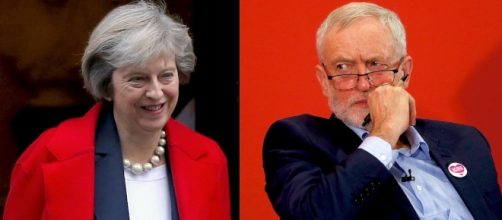The U.K general elections took place on the 8th of this month where voters were to elect members of parliament from 560 U.K constituencies to represent them in the house of commons. The head of the Conservant Party, Theresa May, has led the U.K since July 2016 after the resignation of David Cameron on July 13th, 2016. May's party has only garnered 317 seats below the required 326 seats needed for her party to have majority seats in the house of commons. Her party has lost 13 seats from the previous 330 it held before the elections. The percentage of voters that voted for her party stands at 42.4%.
Jeremy Corby's labor party comes second in the number of seats won, his party has won 261 seats, an increase of 32 seats from 229 seats it held before the elections. 40% of voters voted for his party. Only 68.7% of registered voters participated in the elections; this is an increase of 2.3% in turnout numbers as compared to the 7th may 2015 elections.
Who was eligible to vote?
Those that were eligible to vote were supposed to be on the electoral register. Voters were required to be over the age of 18 years during the polling day. British, Irish and Commonwealth citizens were eligible to vote. A resident in the U.K and British citizens living abroad who registered as voters 15 years ago were also eligible to vote.
The polling stations were opened from 7 am till 10 pm on the election day.
Since no party has a majority win in parliament, what next?
When no party has a single majority seat in parliament, the parliament will be referred to as a Hung Parliament. This type of house can thus not be used to form a stable government. A no confidence vote can thus be quickly passed.
Theresa May may thus consider forming a coalition government with other parties except for the Labour party which came second until majority seats are attained in parliament. If this will not be achieved, parliament will be dissolved, and fresh elections will be held. The U.K parliament is set to re-assemble on June the 13th while it will officially be open on June the 19th.
What may have influenced voting patterns
The UK's exit from EU was a big highlight during the campaigns. Theresa May called for Snap Elections so that her party can secure majority seats in parliament for Brexit negotiations; this has however not been achieved. Voters may have voted for parties that will deliver a final and smooth exit from the E.U.
The UK's exit from the EU was a big highlight during the campaigns. Theresa May called for snap elections so that her party can secure majority seats for Brexit negotiations; this has however not been achieved. Voters may have voted for parties that will deliver a final and smooth exit from the E.U.
Every vote counts. Please back your local Conservative candidate and together we can secure the best Brexit deal & build a stronger Britain. pic.twitter.com/drt7SV0EbS
— Theresa May (@theresa_may) June 8, 2017
Another issue is the Scottish independence, which was a key highlight during the campaigns, that seems to have influenced how Scottish voters voted.


